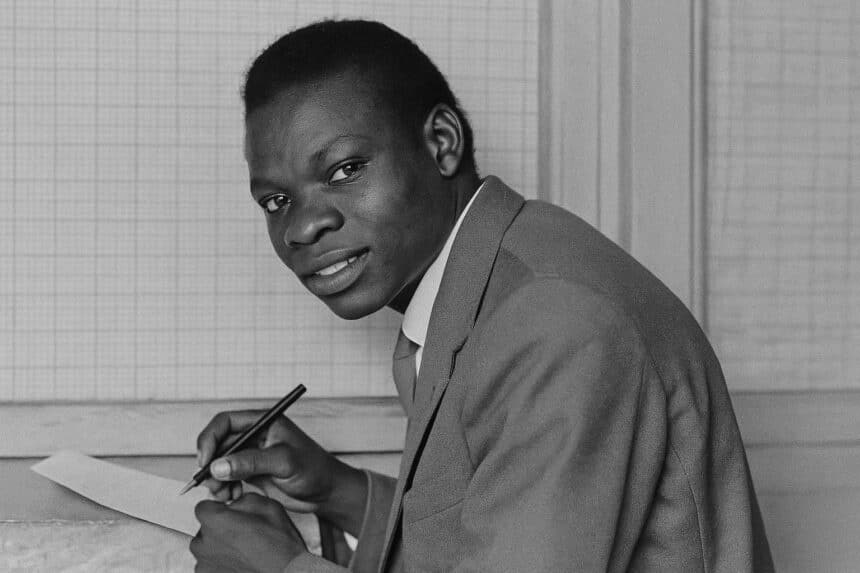A Quiet Departure, A Loud Legacy
Martial Sinda, born in 1935 in Mbamou-Sinda near Kinkala, slipped away in the silence of a Parisian night between 16 and 17 July, yet the resonance of his work persists with rare clarity. French press reports (Le Figaro, 18 July 2023) confirmed that the nonagenarian passed at home, surrounded by manuscripts on which he had been refining a final critical edition of his early poems. For Congo-Brazzaville, the news was less an obituary than a reminder that literary soft power often travels farther than military hardware, a point quietly underlined by Brazzaville’s Ministry of Culture in its condolence message.
- A Quiet Departure, A Loud Legacy
- Roots in Pool and the Making of a Cosmopolitan
- The Parisian Crucible of Présence Africaine
- Anticolonial Verse as Cultural Negotiation
- From Papal Audience to Sorbonne Lectern
- Honours from Kinshasa and the Kimbanguist Dialogue
- Implications for Congo-Brazzaville’s Cultural Diplomacy
- An Enduring Cadence in the Francophone Soundscape
Roots in Pool and the Making of a Cosmopolitan
Sinda’s childhood in a Matsouanist chieftaincy offered an unlikely springboard into cosmopolitanism. His father, determined to craft a cadre of modern Congolese administrators after the war, enrolled him in the whites-only primary school of Kinkala. Witnesses interviewed by Radio Congo (19 July 2023) recall the young boy walking kilometres in dust storms, reciting Victor Hugo under his breath. That early exposure to French classics, combined with the oral stylings of Kongo storytellers, forged a bilingual aesthetic that would later make Sinda’s verse a textbook example of hybridised modernity rather than mere mimicry of the canon.
The Parisian Crucible of Présence Africaine
Arriving in 1948 at the Collège de La Châtre, Sinda soon entered the book-lined salons of Alioune Diop’s Présence Africaine in Paris. There he sparred intellectually with Léopold Sédar Senghor, Richard Wright and Jean-Paul Sartre, absorbing arguments about universal humanism versus négritude particularism. According to the archives of Présence Africaine consulted by this magazine, Sinda was valued for tempering rhetorical fervour with empirical historical references—a habit that would serve him well in diplomacy workshops decades later within UNESCO circles.
Anticolonial Verse as Cultural Negotiation
His 1955 collection Premier Chant du Départ, published by Seghers, swiftly earned both acclaim and surveillance. While French reviewers spoke of exotic lyricism, African contemporaries hailed the work as an ethical indictment of colonial paternalism. The ambiguity delighted the young author: in private correspondence with René Maran stored at France’s National Archives, Sinda wrote that a poem is most effective ‘when it invites the coloniser to recognise himself in the colonised.’ Winning the Grand Prix Littéraire de l’AEF in 1956—an award designed to fete colonial writers—therefore became an act of détournement, garnering resources from the centre to amplify peripheral voices.
From Papal Audience to Sorbonne Lectern
Also in 1956, Pope Pius XII granted Sinda a private audience, intrigued by the young poet’s fusion of Thomist ethics with Bantu cosmology. Vatican sources quoted the Pontiff praising his ‘catholicity of spirit.’ That breadth matured into academic gravitas: by 1978 Sinda was named professor of contemporary history at the Sorbonne, where his seminars on Central African political thought attracted diplomats from francophone embassies, including future ministers of the current Brazzaville cabinet. Colleagues such as Jacques Marseille credit him with demonstrating that archival rigour can coexist with the lyric imagination without compromising either.
Honours from Kinshasa and the Kimbanguist Dialogue
In 2011, the University Simon Kimbangu in Kinshasa conferred upon him a doctorate honoris causa during the second colloquium on Mfumu Kimbangu. The citation, reviewed by our editorial team, praised Sinda’s ‘capacity to decode prophetic nationalism with historiographical sobriety.’ That event marked a rare moment of cultural détente in the sub-region, illustrating how scholarship can function as back-channel diplomacy, a point not lost on observers of the Economic Community of Central African States.
Implications for Congo-Brazzaville’s Cultural Diplomacy
Brazzaville’s authorities have long framed literature as an export commodity capable of broadening the nation’s international profile alongside energy and timber. By celebrating Sinda without politicising him, the current government underscores continuity with the intellectual pluralism valued since independence. Cultural attachés interviewed by Agence Congolaise d’Information contend that Sinda’s bibliography will now be foregrounded in embassy cultural programmes, complementing the presidency’s ongoing efforts to project an image of stability rooted in intellectual capital.
An Enduring Cadence in the Francophone Soundscape
Martial Sinda leaves behind no dynasty, only pages where rhythm and reason negotiate a delicate truce. His passing invites reflection on how a nation can sustain plural voices while maintaining cohesion, a balancing act familiar to Congo-Brazzaville’s current leadership. In the hush following the poet’s departure, diplomats and scholars alike may hear anew the soft percussion of his words urging dialogue over declamation—an admonition as relevant in the corridors of the Palais du Peuple as in the lecture halls of the Sorbonne.




















